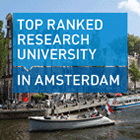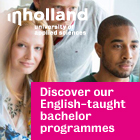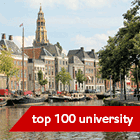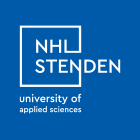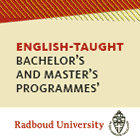Who are EUNiCAS?
EUNiCAS is an independent application support service. It has been set up to facilitate the growing numbers of Irish students who are unable to access their preferred programme, or any suitable programme at all, in a university at home, as well as students who have a clear idea of the advantages of studying abroad.
Importantly, and to underline its independence, EUNiCAS does not charge universities for listing its programmes in its database.

The head of EUNiCAS is Guy Flouch, a Guidance Counsellor. Guy has twenty years of experience working for third-level institutions, in senior student recruitment roles. Through many years of counselling both students and their parents, Guy has an excellent track-record for delivering confidential and impartial advice to students and supporting them in evaluating their study abroad options.
Find The Perfect European English-Language Course For You With The Help of EUNiCAS
Programmes are taught in English
Students can study undergraduate and postgraduate degree programmes in a full range of subjects, taught through the English language. The lectures are in English, books are in English, projects are in English and all of your classmates ….. wherever they come from …… are fluent in English. In addition, the community, in many of your target countries, are fluent in English, particularly in most countries in Northern Europe. In any event, the language of employment – in Science, IT, Engineering and Business – is increasingly English, so many local students are now studying through English, to boost their own employment prospects.
Realistic Entry requirements
In most countries, there is no selection procedure. For example, in most programmes in the Netherlands, you have a Right to an Education, if you meet minimum entry requirements.
Particularly at undergraduate level, these requirements are invariably lower, often significantly, than those being set by Irish and UK universities. This is not a reflection of quality, though. Note that nine Dutch universities are higher-ranked than Trinity College, Dublin. It is simply an indicator that, in Ireland, our third-level education system is under pressure, as more and more students chase a small number of places in our universities. In this context, points/grades are merely demand indicators, and not a measure of the quality of the programme.
At Masters level, the focus, for entry to many programmes, is on the relevance of your undergraduate degree to your target Masters, rather than whether you achieved a first class honours or a 2.1
Places are available
Students can study degree programmes in a full range of subjects, Universities are actively seeking Irish students. Places are available on degree programmes, in a wide range of disciplines, including Health Sciences, Arts & Humanities, Life Sciences, Social Sciences, Engineering & IT and Business.
Free or Low Fees
The cost of attending many universities is often much lower than registering for an equivalent programme in Ireland. There are no fees for studying in the four Scandinavian countries, or Germany. In the Netherlands, fees are just over €2600 pa. Particularly relevant is that the fees for postgraduate Masters programmes are usually the same as for undergraduate programmes and this represent a significant saving when compared with fees for postgrad programmes in Ireland.
In addition, where there are fees, some countries offer Tuition Fee Loans, which cover these fees, with generous repayment terms. Other countries, subject to conditions, offer loans or grants to contribute to living expenses. Irish students who are qualified for Maintenance Grants can take them with them, to public programmes in Continental Europe.
Quality of the education
Of course, this is what it is all about. Even with all the other advantages, you need to be sure that, by studying abroad, you will be receiving an education that is of good quality. Reassuringly, these programmes are offered by some of Europe’s leading Research Universities as well as some excellent Universities of Applied Sciences and University Colleges, which are career-oriented institutions
The Experience
Going to university, whether at home or abroad, isn’t just about studying. By studying in another country, you will have a fantastic opportunity to experience a different culture and lifestyle, and acquire levels of self-confidence and self-knowledge which are unlikely to get at home. If you are independent-minded, with a sense of adventure and a bit of initiative, studying abroad is a life-changing experience.
Create a Unique Selling Point
Studying for your undergraduate or postgraduate programme abroad will ensure your CV is unique. In a global employment market, employers are increasingly looking for key personnel with international perspectives, experience and networks.


